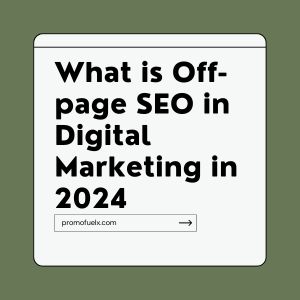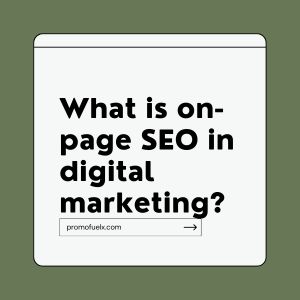What is off-page SEO and types?
Off-page SEO is a technique used to perform outside of your website to enhance website search engine rankings and improve its online visibility. It is performed outside of your website. While on-page SEO mainly focuses on optimizing factors within your website, such as titles, descriptions, and website structure, off-page SEO involves activities that occur beyond your website’s boundaries.
The objective of off-page SEO is to improve your website’s authority and relevance in search engine rankings. This is achieved through factors like backlinks from other websites, which indicate your site’s authority and credibility. It is important that these links come from websites that are relevant to your category. Good quality and relevant backlinks your website has the greater the chance of ranking higher in search engine results.

what are the off page activities?
Here are some common off-page activities in SEO
1. Link building – In off-page SEO Link building is the practice of getting other websites to link to your website. These links are also known as backlinks. Backlinks are essentially incoming links that direct users from one website to another. Link building is an important part of off-page SEO because search engines consider backlinks as a measure of a website’s credibility and authority.
Effective link building strategies include:
- Guest Blogging – Guest blogging is a technique where you create and publish articles or blog posts on other websites in your same category. It involves collaboration with other website owners or bloggers to share content to their platform. In return you typically receive a brief biography and a link back to your own website.
Guest blogging offers several benefits in terms of off-page SEO
Expanded Reach
Increased Exposure
Quality Backlinks
Networking and Relationships
Content Diversification
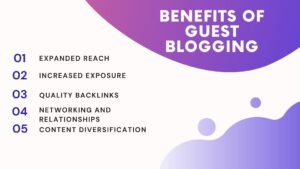
2. Social media marketing – Social media marketing is one way of doing off-page activities. SMM refers to the use of social media platforms such as YouTube, Facebook, Instagram to increase the visibility and reach of a website or brand and generate backlinks, amplify content distribution and enhance online reputation. Social media marketing can play a significant role in supporting these efforts.
3. social bookmarking – In off-page SEO social bookmarking is a technique where you submit and tag a variety of online content such as blog posts, website pages, articles, videos and images to social bookmarking websites. Social bookmarking allows users to save, organize and share web pages they find.
Social bookmarking serves several purposes:
Increased web visibility – Social bookmarking helps your content reach more people boosting visibility and driving website traffic.
Backlink generation – Social bookmarking creates backlinks to your website improving search engine rankings.
Indexing and crawling – Search engine crawlers frequently visit popular sites which are popular and old. so they are more likely for your content to be discovered and indexed faster. Social bookmarking speeds up content discovery and indexing by search engines, enhancing website visibility in search results.
Why do we do social bookmarking?
Increased web visibility
Backlink generation
Faster indexing and crawling
Targeted traffic
Brand exposure and reputation building
Networking and community engagement
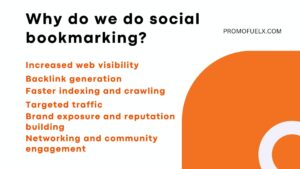
4. Online Reputation Management (ORM) – Online Reputation Management (ORM) in off-page SEO is about monitoring and controlling how people see your brand online. It involves managing reviews, responding to feedback, creating positive content and handling crises to shape a positive online image.
ORM in off-page SEO includes the following key aspects
Monitoring brand mentions
Responding to feedback and reviews
Managing online reviews
Building positive brand presence
Influencer and brand advocacy
Crisis management
5. Influencer marketing – Influencer marketing is one of the great strategies in off-page SEO. Basically Big Brands leverage the popularity of influencers on social media platforms and collaborate with them to promote a brand, product or services to their followers.
In influencer marketing Brands find the most popular influencers on social media whose target audience is relevant to their product. They then approach these influencers to create content or share their brand’s message. This collaboration can involve sponsored posts, product reviews, giveaways, or endorsements.
The main goal of influencer marketing in off-page SEO is to increase brand visibility, cover a wider audience and create valuable backlinks and social signals that can positively impact search engine ranking. When influencers promote any brand or its content so It can lead to more website traffic, engagement and potential customers and also help in retargeting.
6. Forum Participation – Forum participation in off-page SEO means actively joining relevant online forums or discussion boards related to your industry. You participate by engaging in discussions, answering questions, sharing knowledge and providing valuable insights. It helps you build backlinks, establish expertise and drive targeted traffic to your website.
7. Local SEO – Local SEO in off-page targets location-based searches to enhance a business’s online presence within a specific area. Its goal is to make the business more visible to potential customers in that locality area when they search for relevant products or services.
Here are some key components of local SEO in off-page optimization
Local Business Directories – Submitting your business information, such as address, name, phone number and website to local directories like Google My Business, Bing Places and industry-specific directories. This helps search engines and users find and validate your business’s local presence.
Online Reviews – Managing customer reviews on platforms like Google and other relevant sites to improve your business’s reputation and build trust with potential customers.
Localized Content – Create content that is most relevant to your local audience such as location-specific landing pages, blog posts about local events or news and targeting local keywords. This helps search engines understand your business’s relevance to local searches.
Location Based Link Building: Getting backlinks from local sources like business associations, news outlets, or community websites to show search engines that your business is connected to the local community.
Social Media Engagement – Engaging in local social media groups, sharing local news, events and promotions to establish your business as a local authority and increase visibility.
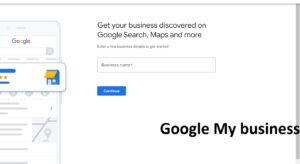
8. Press releases – Press releases in off-page SEO involve distributing official statements or announcements about a company, product or event to media outlets. They are written like news articles and sent to journalists, bloggers and news agencies. The goal is to generate media coverage, acquire backlinks and increase brand exposure.
Key elements of press releases in off-page SEO include
Newsworthy Content – Press releases should have timely and relevant information that journalists and media outlets find newsworthy. This can include product launches, company milestones, industry updates or upcoming events.
Media Outreach – Press releases are sent to media contacts and journalists who cover relevant topics. Building relationships with journalists and sending personalized pitches can boost media coverage and backlink opportunities.
Backlink Generation – News outlets often include links to the company’s website when publishing a press release. These backlinks from authoritative sources can improve search engine rankings and drive more organic traffic.
Brand Visibility and Reputation – Press releases help demonstrate a company’s expertise, achievements or thought leadership in the industry. Media coverage resulting from press releases boosts brand visibility and establishes the company as a trusted authority.
Podcast and webinar participation in off-page SEO involves appearing as a guest on podcasts or joining webinars. These activities offer benefits such as backlinks to your website, increased brand exposure, and establishing authority in your field. They help drive traffic, improve search rankings, and enhance credibility.
10. Directory submission in off-page SEO activities submitting your website’s URL and information to online directories. These directories organize websites into categories and provide a list for users to explore.
In the past, directory submission was a popular SEO technique. It was believed that by submitting your website to reputable directories, you could gain backlinks and boost your search engine rankings. However, search engines like Google have become more advanced at assessing the quality of backlinks. Many low-quality directories focused solely on link building have been penalized, reducing the effectiveness of directory submissions for SEO.
It’s important in directory submission. Choose Good directories relevant to your website’s niche, rather than submitting to low-quality directories.
it’s important to keep the following points in mind while directory submission
Choose reputable directories
Relevant categories
Relevant categories
Diversify your link profile
11. Article submission is an off-page SEO technique that involves submitting articles to online platforms such as article directories or submission sites with the goal of promoting a website and generating backlinks.
Overview of the article submission process in off-page SEO-
Content creation – Create high-quality relevant articles that are well-written, engaging and valuable to readers.
Selecting reputable platforms – Choose reputable article directories or submission sites with good authority and a large user base for maximum impact.
Account setup – Sign up on each platform by providing necessary information and verifying your email.
Submission process – Submit your articles on the platforms using their submission forms. Include the article’s title, body, relevant keywords and author details. Some directories allow adding links to your website in the article or author bio.
12. Image submission – Image submission in off-page SEO involves sharing or submitting images on different websites and platforms to promote your website or content. It helps build backlinks, increase brand visibility and drive traffic. By optimizing and sharing high-quality images with relevant descriptions and links you can enhance your online presence and engage users effectively.
13. Video submission in off-page SEO refers to the practice of uploading videos to platforms like YouTube, Vimeo and Dailymotion to increase visibility and promote your content. It helps optimize videos for search engines and attract more viewers driving traffic to your website.
Create high-quality videos that are relevant, and valuable to your audience. Make sure they are well-shot, edited and provide useful information or entertainment.
Select reliable video sharing platforms like YouTube, Vimeo or Dailymotion that suit your target audience and industry.
14. PPT PDF document submission – In off-page SEO, PPT and PDF document submission means sharing your presentations or documents on different websites or platforms to get backlinks and boost visibility. It’s a strategy to promote your content using visually engaging formats.
15. Classified submission – Classified submission in off-page SEO means posting ads on classified websites to promote products, services, or websites. It helps increase visibility, generate leads, and attract potential customers.
16. Infographic submission in off-page SEO involves creating visually appealing infographics and sharing them on relevant platforms. It helps acquire backlinks, increase exposure and build brand awareness. Create high-quality infographics, optimize them with keywords, submit to reputable platforms and promote them through social media and outreach.
In off-page SEO consider the following tips-
- Create attractive and informative infographics. They should be visually appealing and offer valuable information to viewers.
- Optimize your infographic’s title, description, and tags with relevant keywords to improve its discoverability.
- Submit your infographics to reputable infographic sharing platforms or websites that have an engaged audience and receive significant traffic.
- Promote your infographics on social media platforms, your website, and through outreach to relevant websites or influencers in your industry to maximize their reach.
What is off page SEO strategy?
Off-page SEO is about improving your website’s visibility and ranking by taking actions outside of your site. It includes building quality backlinks, engaging on social media, submitting to directories, guest blogging, collaborating with influencers, managing online reputation and getting brand mentions. These activities help establish your site’s credibility and authority to search engines.
- Here are some common off-page SEO strategies
- Link building
- Social media engagement
- Online directories and listings
- Guest blogging
- Influencer outreach
- Online reputation management
- Brand mentions
Off-page SEO checklist?
- Link Building: Build relationships with reputable websites in your industry to secure high-quality backlinks.
- Social Media Presence: Establish and maintain an active presence on relevant social media platforms.
- Social Bookmarking: Submit your content to relevant and popular social bookmarking sites to increase visibility and drive traffic.
- Online Directories: Increase your online visibility by submitting your website to relevant online directories and business listings.
- Influencer Outreach: Collaborate with influential individuals in your industry to gain exposure and backlinks.
- Guest Blogging: Contribute guest posts to reputable blogs and websites in your niche.
- Forum Participation: Engage in discussions on relevant forums and include links to your website when appropriate.
- Content Promotion: Share your content on social media, industry forums, and online communities to increase visibility and attract backlinks.
- Brand Mentions: Monitor online mentions of your brand and request backlinks when your website is mentioned.
- Local SEO: Optimize your website for local search by targeting location-specific keywords and optimizing your Google My Business listing.
What is the benefit of off-page SEO?
Off-page SEO refers to optimization techniques that are implemented outside of your own website to improve its search engine rankings. The primary benefit of off-page SEO is that it helps in ranking and boosts your website’s visibility authority in search engines like Google and Yahoo.
- Off-page SEO offers several specific benefits for your website
- Improved search engine rankings
- Increased website visibility
- Enhanced website authority
- Brand building and reputation management
- Increased organic traffic
